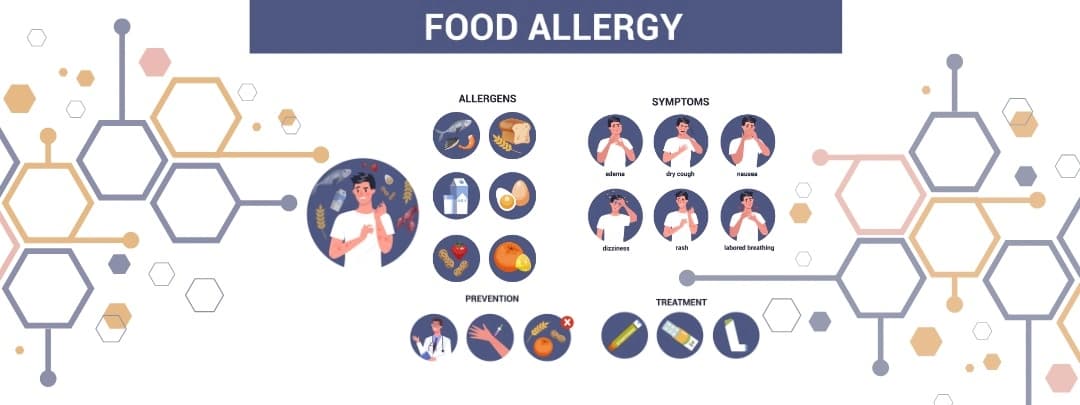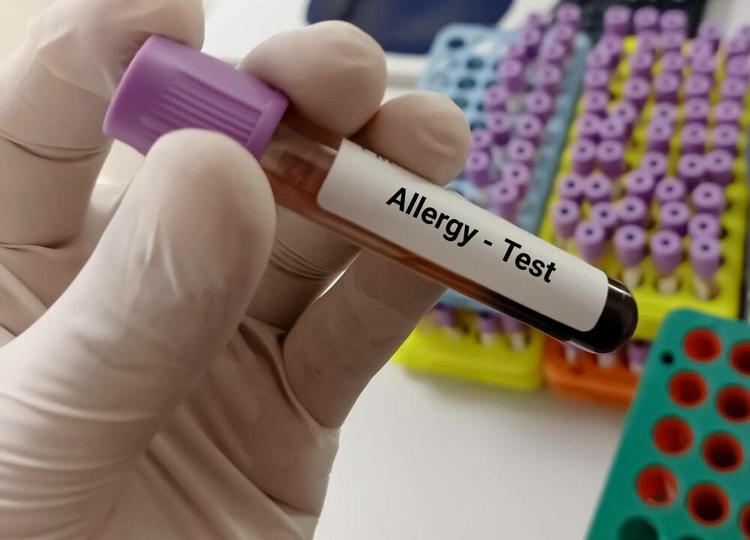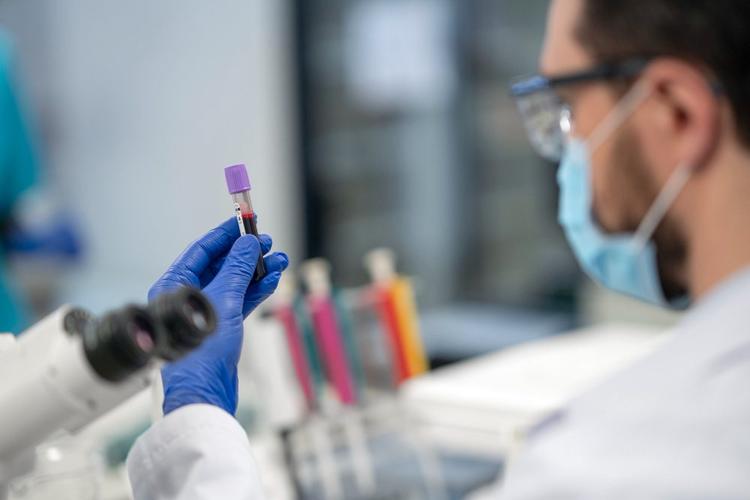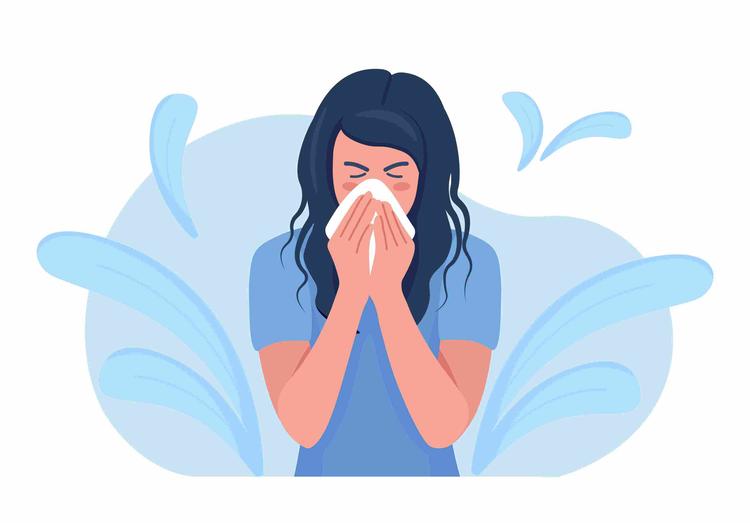Food Allergy - Symptoms, Diagnosis & Treatment

Medically Reviewed By
Dr Divya Rohra
Written By Meenakshi
on Mar 23, 2023
Last Edit Made By Meenakshi
on Mar 18, 2024

Food allergies are not funny!
Food Allergy is no joke and, in fact, the most rising cause of concern. Food Allergy is your immune system’s response to a specific food component that can be potentially life-threatening if not taken seriously. Out of all the allergies, food allergies are amongst the most common ones.
Even the slightest trace of a food substance you are allergic to is enough to put your life at risk. We didn't mean to scare you but to make you aware. Do not take food or any other all allergies for granted.
Right now, you might have many questions, like what it is, the causes, early symptoms, and how to manage it before it takes over your health. Well, hold your breath and pull yourself together, as we’ve got the answers to all your queries. In the blog, we will explore everything you need to know about food allergies and testing, including the types of tests available. Whether you're a parent concerned about your child's food allergies or an adult looking to understand your allergies, this blog has all the information you may need to get started on the path to better health and safety. So, let’s get started with the basic.
Food Allergy – What is it?
A Food Allergy is a medical condition that happens when a typical food triggers an abnormal immune response. It is caused when your immune system doesn’t respond favorably to a specific food element and recognizes it as harmful. For people with food allergies, exposure to even the slightest trace of the allergen could take over your health and can be lethal. If you suspect you or anyone in your loved ones may have a food allergy, get tested within the latest possible moment.
Food Allergy Symptoms You Should Watch Out To:
Food allergy symptoms can occur as soon as a few minutes after the exposure or could even take a few hours or days to develop, depending on the type of allergy and other factors. Additionally, it is vital to understand that symptoms are not the same for everyone and can differ depending on their health condition, age, gender, and other factors. However, some of the common that most people experience and complain about are:
- Tingling or unusual itching in the mouth
- Swelling of the face, mouth, throat, and other body parts
- Difficulty swelling
- Wheezing or shortness of breath
- Vomiting
- Diarrhea
- Itchy rashes on the skin
- Hives
- A sudden drop in the blood pressure
When the condition turns severe, it causes anaphylaxis and can be harmful if left unaddressed. Most people ignore them, considering them as simple as food intolerance, but are they the same?
Food Allergies And Food Intolerance – Same Or Not?
Food allergy and food intolerance are often mistaken for each other because the symptoms of both conditions are similar. However, both are different conditions. Food intolerance is not life-threatening, but allergies can be. Hence, be careful and act strictly to avoid outcomes.
Food Allergies Everyone Should Know Are:
- Cow’s Milk
- Tree Nut
- Eggs
- Peanuts
- Soy
- Wheat
- Fish
- Shellfish
Whether you have this or any other food allergy, getting tested in time is the only key to avoiding severe complexities. Your doctor may conduct several Food Allergy Tests to confirm the type & cause of the allergy.

Types Of Food Allergy Tests:
- Skin Prick Test: Also called Punctured or Scratch Test, Skin Prick Test is the most sensitive test that checks for immediate allergic reactions. It is usually recommended when you have had intense allergic reactions, take medication that can interrupt the results, or have a skin condition. It is a little bit more painful than other tests. But thanks to its accuracy, it is widely used and safe in most cases.
- Blood Test: Another common way doctors may use to diagnose a food allergy is through a blood test. The test will measure the immunoglobulin E antibody or the total number of allergic antibodies in the blood to diagnose and confirm the allergy. If done appropriately, using accurate testing practices, a blood test can rule in or out food allergies.
- Oral Food Challenge Test: Another costly, typical, and successful food allergy test that accurately diagnoses the food allergy is an oral food challenge test, also called the feeding test. It helps check if a person has an immune reaction to a specific food.
If you feel unwell after having a particular food, an allergy could be the cause. Get tested immediately!
Other Reasons You Should Take The Food Allergy Tests Are:
- Have Symptoms: You should immediately book an Allergy Test if exhibiting symptoms. Any delay or overlooking symptoms can lead to severe complications.
- Family History: If an allergy problem runs in your genes, your doctor probably will suggest Allergy Testing. It helps identify if you are at risk and make it possible to avoid complexities.
- Have Had Other Allergies: If you have Asthma or any other allergies that might make you prone to develop allergies, your doctor may recommend an allergy test to confirm or rule out the odds of having one.
To make the long story short, if your doctor has recommended a Food Allergy Test, keep all your thoughts aside and book yourself a test at the earliest. Any delay can be dangerous for your health.
It is hard for people with no food allergies to believe that they are real and can be destructive. And even people dealing with it have so many misconceptions in their minds. Do not fall for everything you hear; trust only your healthcare provider. Here is a list of some misapprehensions about food allergies.
- Allergies are just for kids: Well, it is not right! Anyone can get food allergies, which are more common in kids, but adults or the elderly can develop them too at any age.
- Food Allergies & Food Intolerance are the same: No, they are not. Food allergy ensues when the immune system reacts to a food, while food intolerance happens when the body has a chemical reaction to a specific food substance or beverage.
- Prevention is not possible: Again, another myth surfing the web is that food allergies are not preventable. However, the truth is that preventing them to the most extent is possible. According to clinical studies, up to 80% of specific food allergies can be prevented.
There is no cure for allergies yet, and strictly avoiding the food that triggers the allergy is the only way to prevent a reaction. However, we cannot deny that knowing you are allergic to food reduces your risks, and getting diagnosed in time helps you obtain treatment to ease the symptoms and control them from becoming severe.
Conclusion:
Food allergies are intense and can be fatal. Hence, a delay is not an option. Get tested at the earliest to avoid the worst. Once you are all set to get tested for allergies, book a Food Allergy Test with Redcliffe Labs, your trustworthy diagnostic partner that you can count on. We are the platform where experience meets excellence, so you receive accurate reports every time. And the best part is that you can get tested with us comfortably from home, thanks to our doorstep sample collection service. So, why take the risk when you can take the test? Grab your phone and book a Food Allergy Test with Redcliffe Labs in 1 minute.



